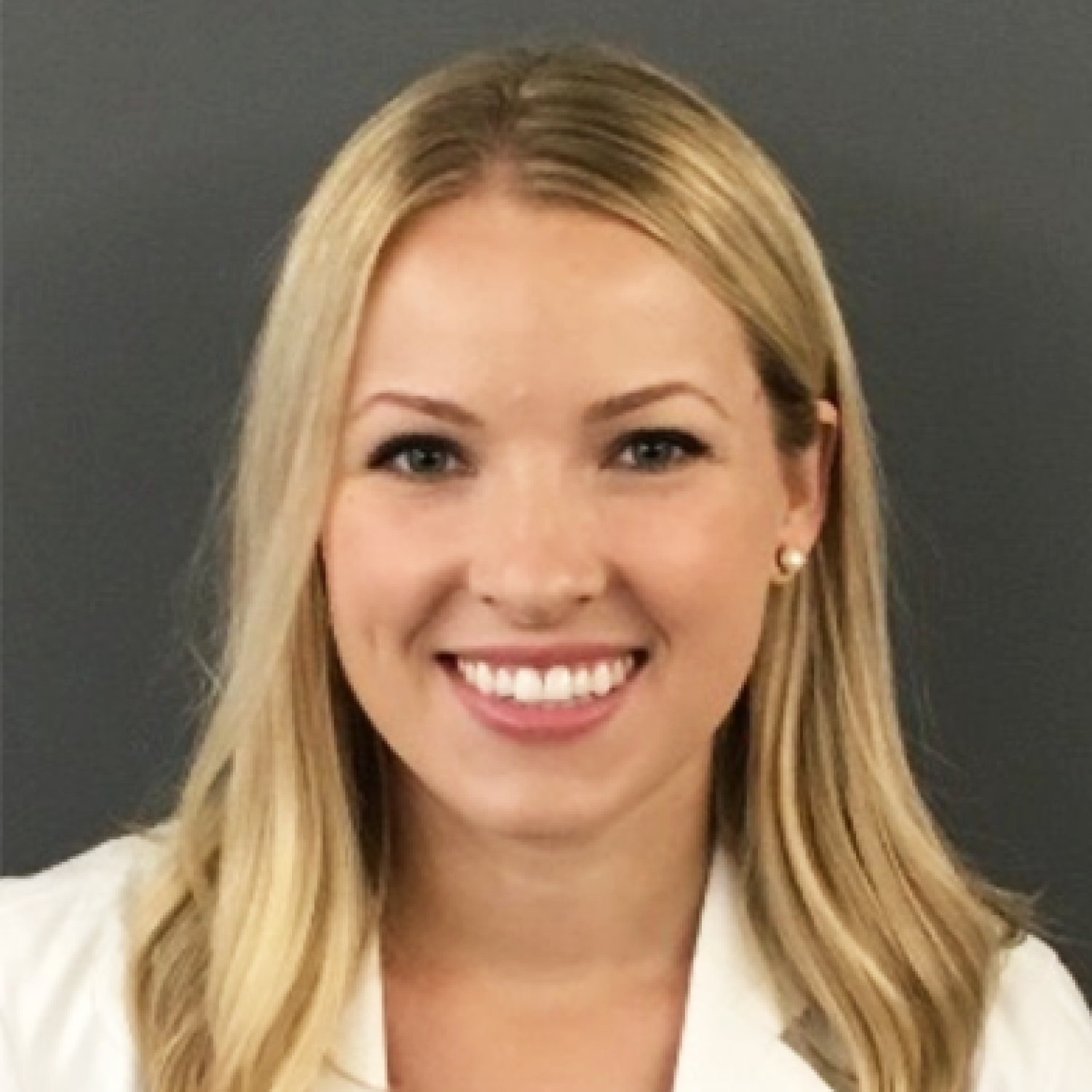Kayla G. Sprenger
- Assistant Professor
- CHEMICAL AND BIOLOGICAL ENGINEERING
- BIOMEDICAL ENGINEERING PROGRAM

Office: JSCBB C225
Education
BS, Chemical Engineering, (UW) (2012)
MS, Chemical Engineering, (UW) (2014)
PhD, Chemical Engineering, University of Washington (2017)
Awards
- Outstanding Partner Award | CU Boulder's Research & Innovation Office (2023)
- American Institute of Chemical Engineers "35 Under 35" award (2023)
- Selected Participant Early Career Reviewer (ECR) Program, NIH (2022)
- Fellow Research Impact Fellowship (RIF) Program | CU Boulder Personally chosen by department chair and college dean (2022)
- Nominated Outstanding Faculty Advisor Award | CU Boulder (2022)
- Selected Participant US Frontiers of Engineering Program | National Academy of Engineering (2022)
- Grant Awardee National Center for Faculty Development & Diversity Faculty Success Program Awarded by CU Boulder Office of Faculty Affairs (2022)
- Selected Participant NSF Mathematical & Physical Sciences (MPS) Workshop for New Investigators (2020)
- Selected Participant MIT Rising Stars in Chemical Engineering Worskshop (2018)
- Selected Participant MIT/JHU Rising Stars in Biomedical Worskshop (2018)
- 1st Place Oral Presentation Award, DYSS Series, UW ChemE (Aug. 2018)
- UW College of Engineering Student Research Award (Apr. 2017)
- Husky 100 Award, UW (Feb. 2017)
- 2nd Place Oral Presentation Award, ChemE Graduate Student Symposium, UW (Nov. 2016)
- AIChE CoMSEF Conference Presentation Award (Nov. 2016)
- 2nd Place Oral Presentation Award, Biomaterials Graduate Student Award, AIChE (Nov. 2016)
- ACS Chemical Computing Group Research Excellence Award (Nov. 2016)
- International HPC Summer School Travel Scholarship (Mar. 2016)
- UW ChemE Barbara Krieger-Brockett Travel Award (Nov. 2015)
- AIChE Women’s Initiatives Committee (WIC) Travel Award (Sept. 2015)
- Graduate School’s Fund for Excellence and Innovation Travel Award (Sept. 2015)
- PCCP Journal 1st Place Poster Prize at the FOMMS Conference (Jul. 2015)
- CoMSEF Conference Presentation Award at the FOMMS Conference (Jun. 2015)
- NSF FOMMS Graduate Student Fellowship (Apr. 2015)
- Suzanne Brainard Women in Science and Engineering Scholarship (2014 – 2015)
- UW Society of Women Engineers Outstanding Female Graduate Award (Jan. 2015)
- Best Paper [Oral] Presentation, Thermophysical Properties of Biological Systems Division, AIChE (Nov. 2014)
- 1st Place Poster Competition Prize in Reaction Engineering, Catalysis and Reaction Engineering Division, AIChE Annual meeting (Nov. 2013)
- Graduate School’s Fund for Excellence and Innovation (GSFEI) Travel Award (Oct. 2013)
Selected Publications
- Emily R. Rhodes, Jonathan G. Faris, Brian M. Petersen, K. G. Sprenger, Common Framework Mutations Impact Antibody Interfacial Dynamics and Flexibility, In Press at Frontiers in Immunology (2022 IF 7.561), (2023), DOI: 10.3389/fimmu.2023.1120582.
- Jonathan G. Faris, Daniel Orbidan, Charles Wells, Brenden K. Petersen*, K. G. Sprenger*, Moving the Needle: Employing Deep Reinforcement Learning to Push the Boundaries of Coarse-Grained V accine Models, Frontiers in Immunology (2022 IF 7.561), 13, 1029167 (2022), DOI: 10.3389/fimmu.2022.1029167.
- Dean Oldham, Hong Wang, Juliet Mullen, Emma Lietzke, K. G. Sprenger, Philip Reigan, Robert H Eckel, Kimberley D Bruce, Using synthetic ApoC-II peptides and nAngptl4 fragments to measure lipoprotein lipase activity in radiometric and fluorescent assays, Frontiers in Cardiovascular Medicine (2021 IF 6.050), 9, 926631 (2022), DOI: 10.3389/fcvm.2022.926631.
- Simone Conti, Victor Ovchinnikov, Jonathan G. Faris, Arup K. Chakraborty, Martin Karplus*, K.G. Sprenger*. Multiscale affinity maturation simulations to elicit broadly neutralizing antibodies against HIV , PLoS Computational Biology (2021 IF 4.779), 18, e1009391 (2022), DOI: 10.1371/journal.pcbi.1009391.
- Brian M. Petersen, Sophia A. Ulmer, Emily R. Rhodes, K. G. Sprenger*, Timothy A. Whitehead*. Regulatory approved monoclonal antibodies contain framework mutations predicted from human antibody repertoires, Frontiers in Immunology (2022 IF 7.561), 12, 728694 (2021), DOI: 10.3389/fimmu.2021.728694.
- Irene Francino Urdaniz, Paul J. Steiner, Monica B. Kirby, Fangzhu Zhao, Cyrus M. Haas, Shawn Barman, Emily R. Rhodes, Linghang Peng, K. G. Sprenger, Joseph G. Jardine, Timothy A. Whitehead, One-shot identification of SARS-CoV-2 S RBD escape mutants using yeast screening, Cell Reports (2021 IF 9.995), 36, 109627 (2021), DOI: 10.1016/j.celrep.2021.109627.
- Arup Chakraborty & K. G. Sprenger, Eliciting Potent Antibodies Against Highly Mutable Pathogens by Vaccination, Physical Biology (2020 IF 2.583), 18, 13-15 (2021), DOI: 10.1088/1478-3975/abde8d.
- K. G. Sprenger*, Joy Louveau*, Pranav Murugan, Arup Chakraborty, Optimizing Immunization Protocols to Elicit Broadly Neutralizing Antibodies, Proceedings of the National Academy of Sciences (2021 IF 12.78), 117, 20077- 20087 (2020), DOI: 10.1073/pnas.1919329117.
*Authors contributed equally
Research Interests
Infectious and neurological diseases such as HIV or Alzheimer’s Disease lack universal care today and cause millions of deaths annually. Harnessing the immune system in a precise and targeted manner, through specific vaccinations or targeted drug delivery, offers a promising route to alleviate these issues. However, major challenges to doing so include understanding (1) how the adaptive immune system responds to rapidly-evolving infectious disease pathogens (e.g., HIV, influenza, and malaria), (2) the role of immune cells and immune receptors in misregulating and perpetuating neurological diseases (e.g., Alzheimer’s Disease and multiple sclerosis), and (3) how this information can be leveraged to inform the design of vaccines and therapeutics.
At the Rational Design of Immunotherapeutics (RDI) Lab, our goal is to develop clinically-translatable, immune-based therapies for neurological and infectious diseases. We build computational models of biological processes that span the atomistic to cellular scales, leveraging approaches from statistical learning and data science. Our work is highly interdisciplinary, focused at the crossroads of physics, engineering and immunology, and we work in close synergy with experimentalists and clinicians.

